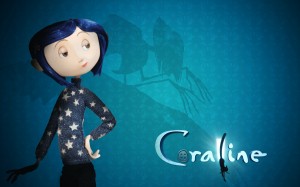There are two major CRTC hearings in the works right now that the copyright/internet savvy should be looking to – and Denis McGrath does a nice job of explaining how they interrelate. The one going on right now, among other things, is looking at the viability of some type of governmental support for creating new media content (the same way it mandates support for radio, publishing, and other creative sectors). Users, generally speaking, are hostile to this thought – because they corrolate it with taxes on blank-media or higher internet fees (either of which could indeed be one possible outcome – but is kind of narrow-sited… CanCon regulations for radio and television don’t necessarily make *them* more expensive, those come out of the post-consumer/advertiser net profits of broadcasters, and can’t necessarily be passed on to end users).
The tricky issue (as Denis adroitly points out) is that these two groups (the ISP’s, vs the creative sector) are also going to butt heads in a few weeks time over net neutrality in Canada (the promised followup to the Bell BitTorrent throttling case, (you might recall at that time, I said not to riot in the streets… that the battle for “all the marbles” had not yet been fought).
As far as I’m concerned this is the battle for an epic amount of marbles.
As we know from similar cases in the USA, ISP’s and telco’s really want to be able to determine what goes through their networks and how. The moment, this precedent gets set – the door is open to a radically different internet, where the services of your ISP (including their own telecom, television, movie, video-on-demand, even websites) can be treated fundamentally different than everything else on the internet. How the ISP’s want to use their network is primary over how the users want to use the network. You are no longer paying for a service, you’re paying for whatever content the ISP’s chose to provide, on whatever terms they deem “necessary”.
It’s been pointed out elsewhere in the CRTC filings that Bell launched a new video-on-demand service around the same time they started throttling BitTorrent traffic. Is that because the volume of the traffic legitimately was overwhelming (interesting, since streaming video has, by some accounts, been the largest single source of total traffic over much of the internet since 2007)? Or was it because it was a competitor to Bell? Should YouTube be throttled? Should Bell implement similar policies against Skype, is it because of volume? Or is it because of competition to Bell’s traditional landline offerings? I’m not saying any of these are true (or even likely), but the point is that once that door is open you (the end user) will never know.
In all the clutter of the current CRTC new media hearings, the preliminary filing by the CFTPA (Canada’s producer’s association) has been mostly overlooked although Michael Geist got part of it:
while P2P applications are undeniably used for the distribution of unauthorized content (as are email, newsgroups and the web), they also are increasingly serving as the foundation for new business models that will enable independent producers to make full use of broadband as a delivery vehicle for Canadian audio-visual programming. Consequently, the CFTPA is concerned that discriminatory traffic throttling may inhibit the development of new applications that would facilitate the ability of independent producers and other content providers to better monetize their content.
Roll that around on your tongue for a minute. That’s Canada’s content producers association saying that while P2P piracy is bad, it’s not nearly as bad as what the control creators would give up if ISP’s are allowed to treat traffic in anything less than an absolutely neutral manner.
The Geist article above goes on to echo this sentiment from a litany of artist organizations (and, interestingly enough, the CBC… one of the few national broadcasters without a related national ISP unlike Bell and Rogers affiliated broadcasters).
But don’t overlook the whole second half of the CFTPA filing either. This is the half which goes on to ask some difficult questions of ISP’s – such as why (if network volume is such an issue) they continue to offer faster, and faster, connections – while actually delivering less and less in the way of actual service. Why the ISP’s advertise speed rates they can’t possibly achieve given their actual infrastructure. Why Canada is rapidly falling in the rankings of Broadband and wireless penitration, adoption, and cost against almost every other OECD country (out of the 30 OECD countries, Canada’s price per megabit of Internet service ranks a near dead-last 27th).
And again, these are the producers – the ones you would suspect would be the first in line to throw a big “down with BitTorrent” party. Heck, the filing goes out of it’s way to point out a number of Canadian shows who benefited from legal BitTorrent distribution – (and I’m not just pleased to see that because they referenced my own Dead End Days and Cerealized).
This filing (and dozens like it) can look past immediate self-interests to see that:
The CFTPA submits that requiring ISPs to adopt an agnostic approach to traffic
management is critical to ensuring that the Internet remains an open-access platform. Such
an approach encourages innovation in the design and development of new applications and
services and facilitates the delivery of Canadian content – including Canadian audio-visual
content – to Canadians.
In a lot of ways the CRTC hearings to date have some amount of “side-show” to them (not that they aren’t important), but this one is the main event. It will shape the way Canadians produce, distribute, and watch content for years to come – and if that’s not enough to make it worth your while to wade through the odd text-heavy report… then I don’t know what is… but don’t be surprised if you wake up one morning to find your marbles strangely absent.
- Disclosure: I work with a member company of the CFTPA, and have also been involved with the working group behind this filing.





